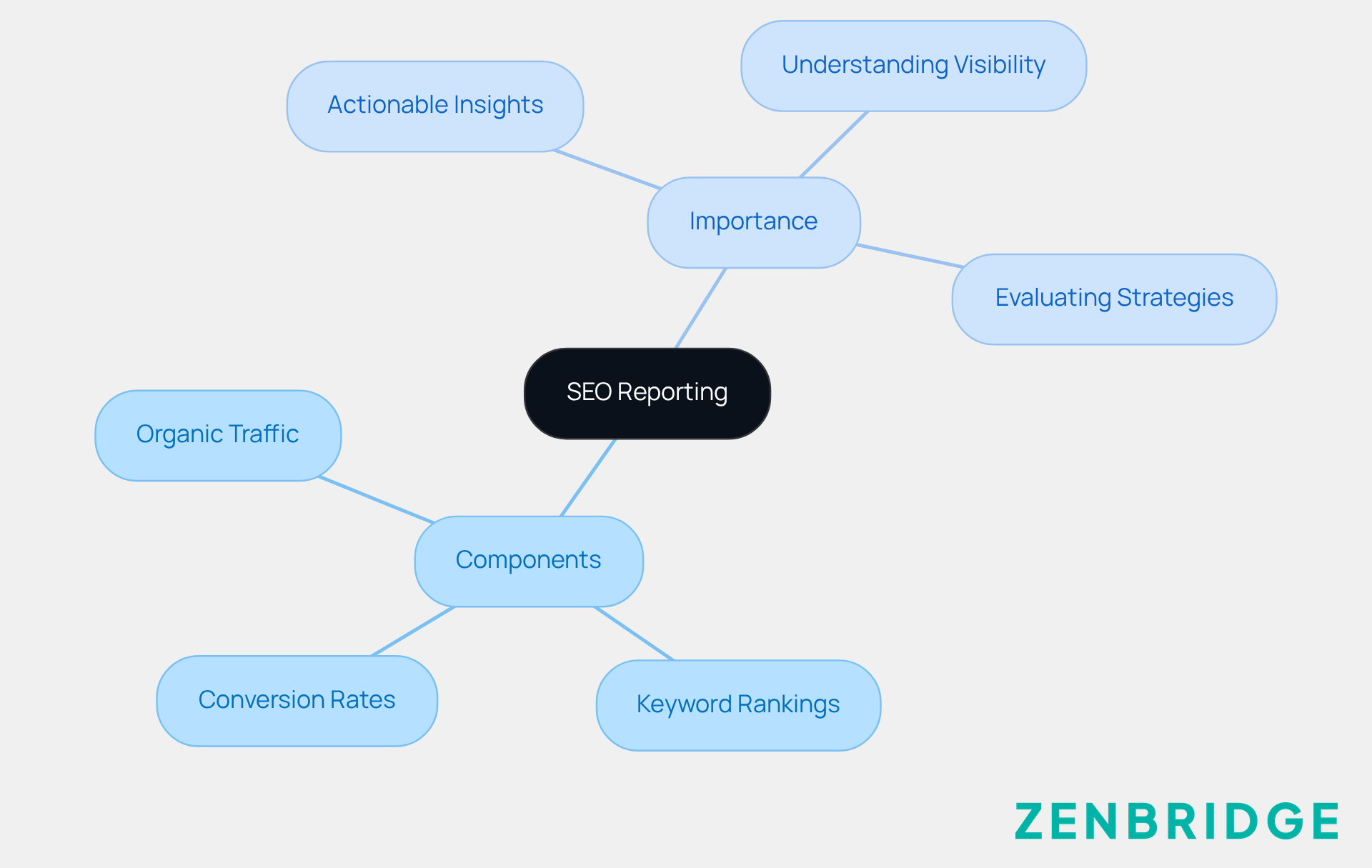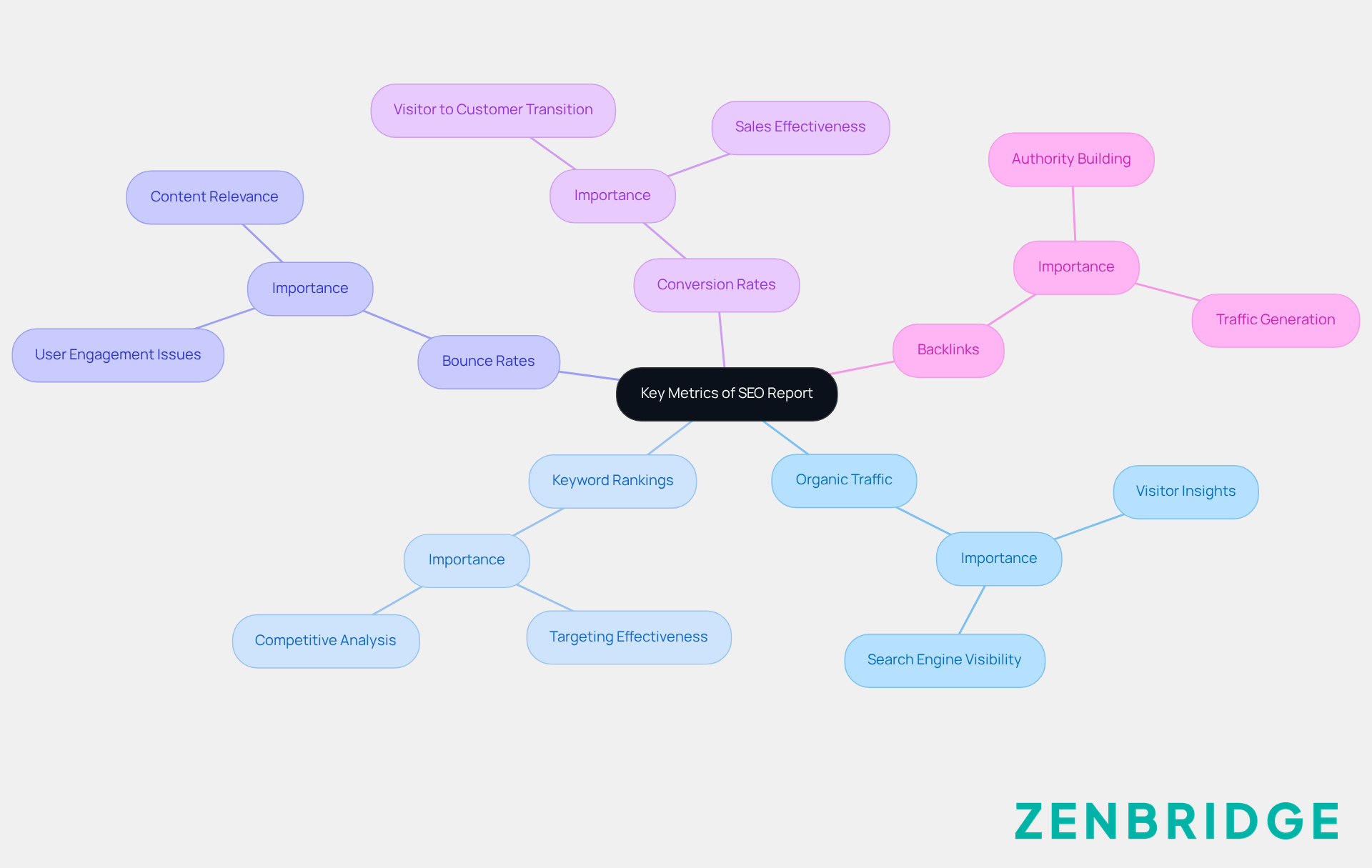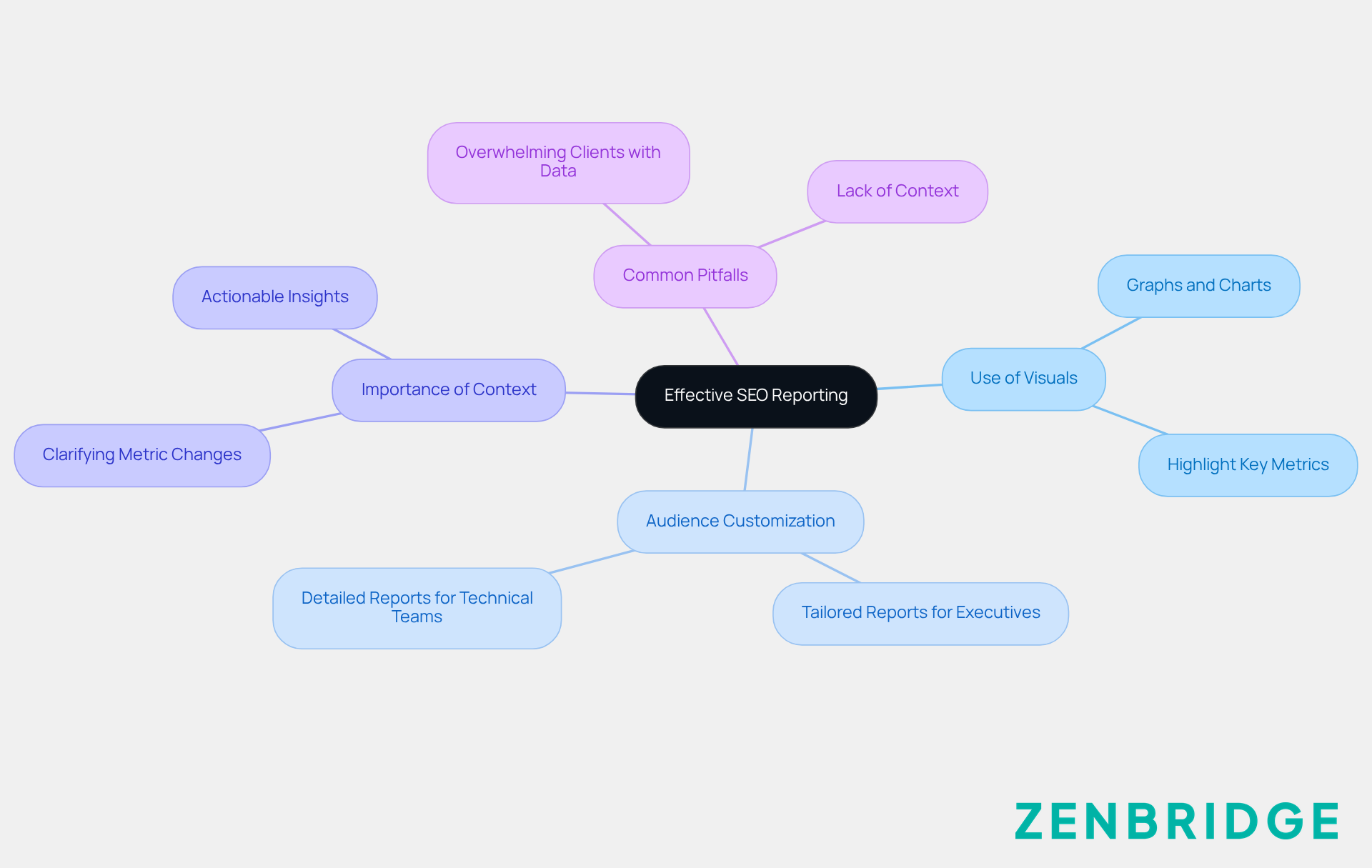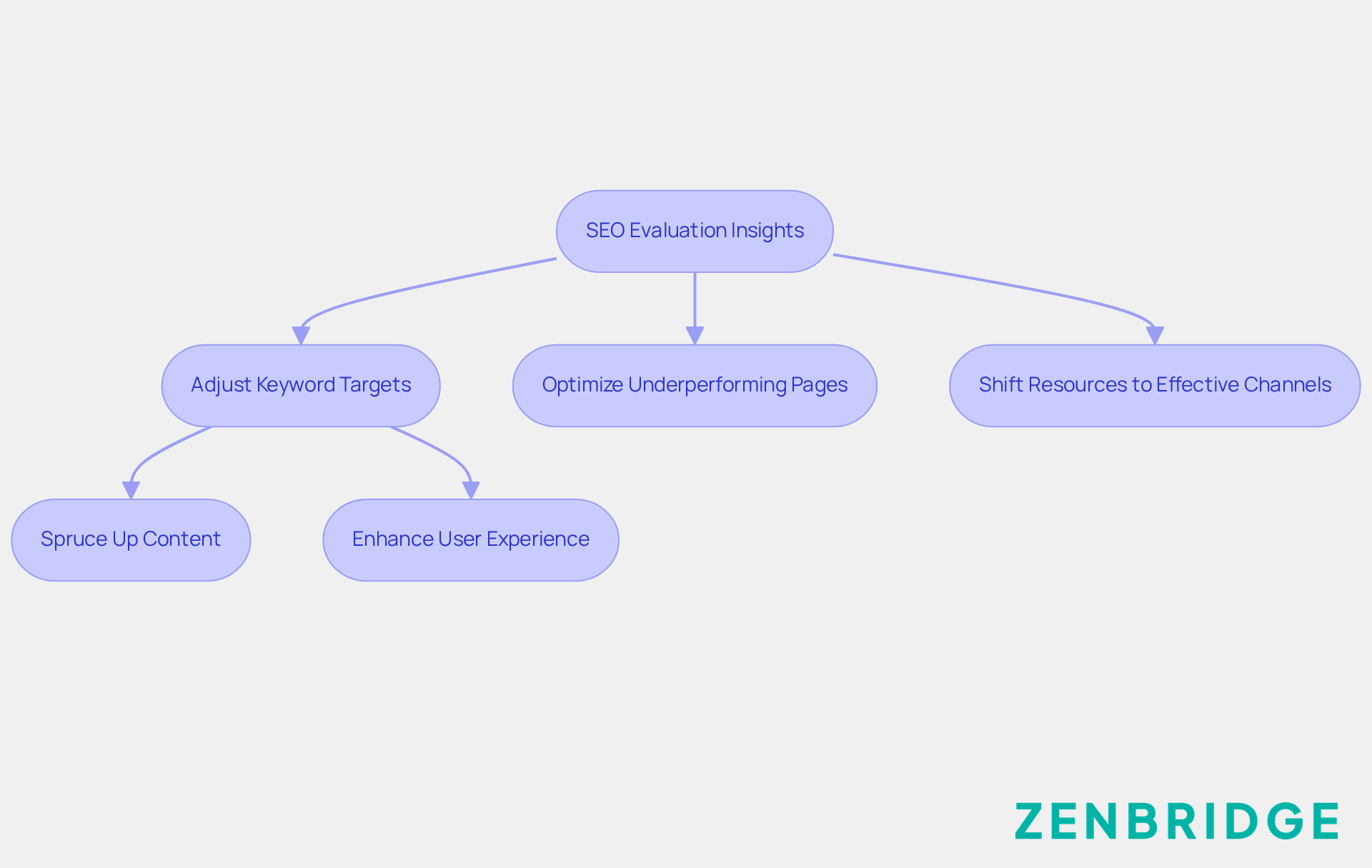
4 Key Practices for Effective SEO Online Report Creation

Key Highlights:
- SEO reporting involves gathering and analysing data on website performance in search engine results, focusing on metrics like organic traffic and keyword rankings.
- It provides actionable insights, helping businesses assess their online visibility and the effectiveness of their SEO strategies.
- Key metrics for an effective SEO report include organic traffic, keyword rankings, bounce rates, conversion rates, and backlinks.
- Visual aids like graphs and charts enhance the clarity of SEO reports, making it easier for stakeholders to understand performance trends.
- Customising reports for different audiences (executives vs. technical teams) is crucial for effective communication.
- Insights from SEO reports can drive strategy adjustments, such as optimising underperforming pages or reallocating resources to more effective channels.
- AI tools can automate data analysis, enabling quicker adaptations to SEO strategies for sustained growth.
Introduction
Hey there! Effective SEO reporting is a key part of any digital marketing strategy. It gives businesses a clear view of how they’re doing online. By carefully gathering and analysing data on important metrics like organic traffic and keyword rankings, companies can uncover valuable insights that shape their SEO strategies.
But here’s the thing: translating complex data into actionable recommendations can be tricky. How can businesses make sure their SEO reports not only share essential information but also spark meaningful decision-making? Let’s dive in and explore this together!
Define SEO Reporting and Its Importance
Hey there! So, let’s discuss the SEO online report. It’s all about gathering, analysing, and sharing data that shows how well a website is performing in search engine results. You know, things like organic traffic, keyword rankings, and conversion rates.
Why is SEO reporting important, you ask? Well, it gives you actionable insights that help businesses understand their online visibility and assess how effective their SEO online report and strategies really are. By keeping an eye on SEO analyses and creating an SEO online report, companies can spot trends, evaluate the impact of their efforts, and make smart decisions to boost their digital marketing game.
This is especially key for service-oriented businesses that rely on local SEO to attract clients. So, if you’re in that boat, it’s time to dive into those reports and see what’s working for you!

Identify Key Metrics and Components of an SEO Report
Hey there! Let’s chat about what makes an effective SEO online report. It should really cover some key metrics like:
- Organic traffic
- Keyword rankings
- Bounce rates
- Conversion rates
- Backlinks
Each of these plays a crucial role in figuring out how healthy your website's SEO strategy is.
For example, organic traffic tells you how many visitors are finding your site through search engines. Pretty important, right? And then there are keyword rankings, which show how well your site is doing for the search terms you're targeting. Now, tracking bounce rates is also super helpful—it can point out any issues with user engagement. And don’t forget about conversion rates; they reveal how well your site turns visitors into customers.
By keeping an eye on these metrics, you can gain a solid understanding of your SEO online report performance. Plus, you’ll spot areas where there’s room for improvement. So, what do you think? Ready to dive deeper into your SEO strategy?

Present SEO Reports for Maximum Impact
To make your SEO online report really stand out, it’s essential to use clear visuals like graphs and charts that highlight those key metrics. This not only makes the info easier to digest but also helps stakeholders quickly grasp performance trends. For example, did you know that the No.1 result on Google gets nearly 20 times more clicks than the page at No.10? That really shows how important an SEO online report is for driving traffic and conversions.
Now, let’s talk about providing some background for the information. It’s crucial to clarify why certain metrics have changed and what actions can be taken in response. Plus, customising your document for your audience is key—executives might prefer high-level summaries, while technical teams often need more detailed info.
Automated tools can whip up summaries in minutes, but digging into the data takes a bit more time. This highlights the commitment needed for a thorough analysis. By focusing on clarity and relevance, and using tools like AgencyAnalytics and Looker Studio for tailored analytics, you can ensure your SEO online report delivers actionable insights and sparks meaningful conversations about future strategies.
And hey, let’s not forget to steer clear of common pitfalls! Overwhelming clients with too much data or not providing enough context can really dampen the effectiveness of your SEO reporting.

Adapt and Improve SEO Strategies Based on Reporting Insights
Once you've taken a good look at your SEO evaluations in the seo online report, it’s time to roll up your sleeves and make some tweaks to your strategies. This could mean:
- Adjusting your keyword targets based on how they’re performing
- Optimising those pages that aren’t quite hitting the mark
- Shifting resources to channels that are really working for you
For example, if you find that certain keywords are bringing in plenty of traffic but aren’t converting, you might want to think about:
- Sprucing up the content on those pages
- Enhancing the user experience
And hey, don’t forget about AI tools! They can help automate the analysis of your SEO data, making it easier to pivot quickly and keep your marketing strategies agile.
By continuously refining your approach based on the insights from the seo online report, you can stay ahead of the competition and drive sustainable growth. So, what do you think? Ready to dive in and make some changes?

Conclusion
Creating effective SEO online reports is super important for understanding how your website is doing and boosting your digital marketing strategies. By honing in on key metrics and presenting data in a clear, impactful way, businesses can really leverage SEO reporting to gather valuable insights that help in making better decisions.
So, what are the crucial practises for crafting these effective SEO reports? Well, it starts with identifying key metrics like:
- Organic traffic
- Keyword rankings
- Conversion rates
It’s also essential to use visuals to make the data easy to digest and to tailor reports for different audiences. Plus, when we talk about refining SEO strategies based on what the reports reveal, it really highlights the need for continuous improvement to stay ahead in the digital game.
In conclusion, embracing these best practises for SEO reporting doesn’t just help businesses grasp their online visibility; it also empowers them to make informed tweaks to their strategies. By focusing on actionable insights and effective communication, companies can tap into the full potential of their SEO efforts and drive sustainable growth in this fast-paced digital world. You know what I mean? Let’s keep the conversation going on how we can make the most of our SEO strategies!
Frequently Asked Questions
What is SEO reporting?
SEO reporting involves gathering, analysing, and sharing data that indicates how well a website is performing in search engine results, including metrics like organic traffic, keyword rankings, and conversion rates.
Why is SEO reporting important?
SEO reporting is important because it provides actionable insights that help businesses understand their online visibility and assess the effectiveness of their SEO strategies. It allows companies to spot trends, evaluate the impact of their efforts, and make informed decisions to enhance their digital marketing.
Who benefits the most from SEO reporting?
Service-oriented businesses that rely on local SEO to attract clients benefit the most from SEO reporting, as it helps them understand what strategies are effective in reaching their target audience.

